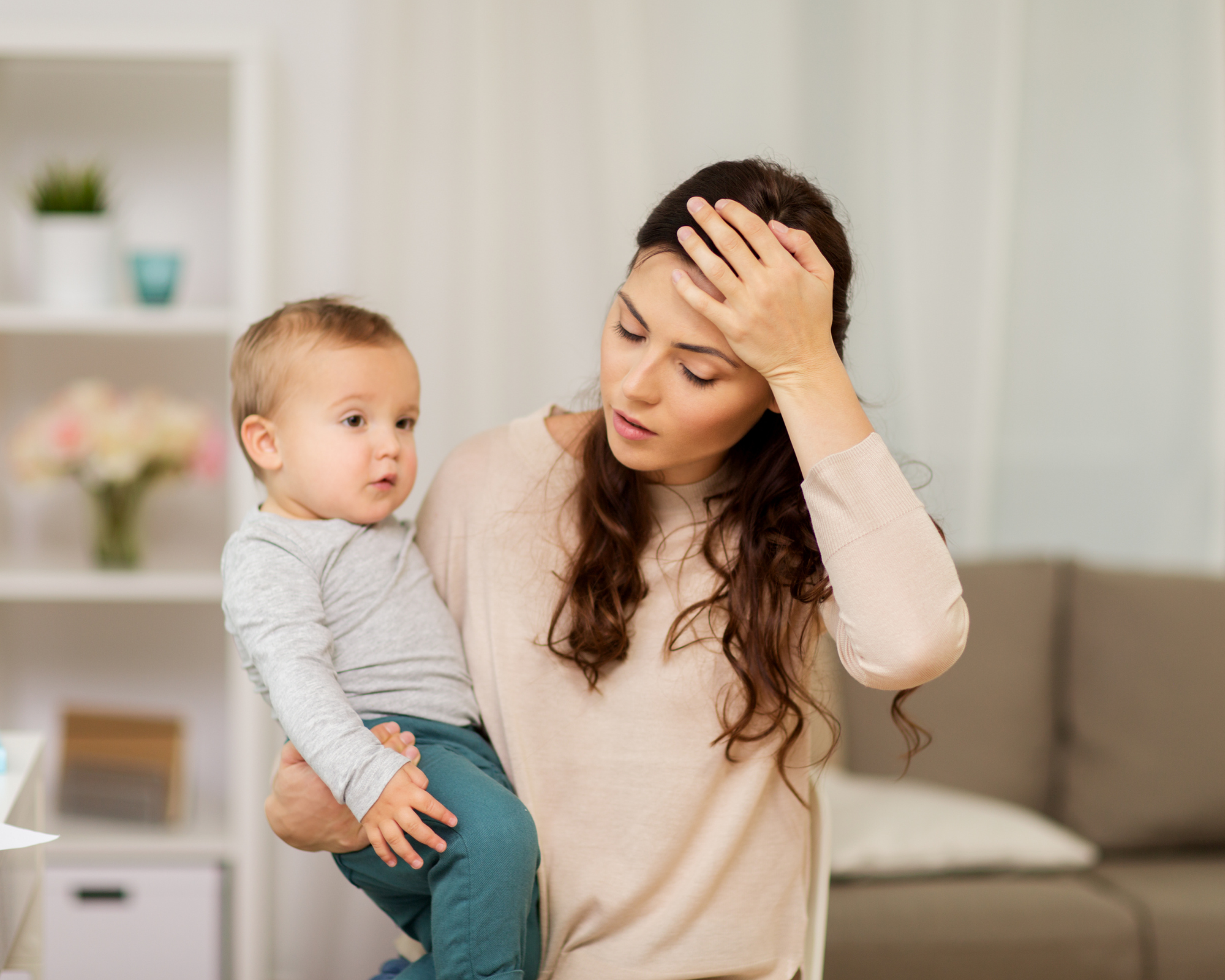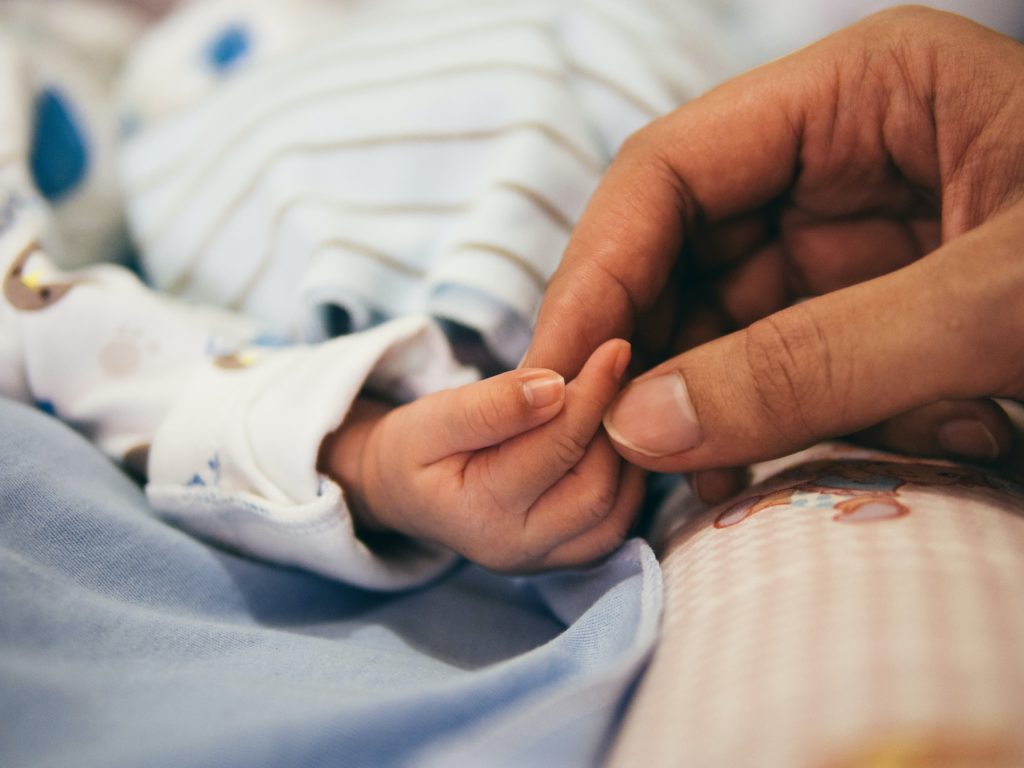We may earn money or products from the companies mentioned in this post.
Last Updated on January 9, 2025 by Samantha Flores
Society has a funny way of telling us women that having a baby will be the best thing to ever happen to us. What society fails to do is warn us about what to expect postpartum. There are many things that happen postpartum that aren’t talked about enough.
Every woman will experience postpartum differently. There is no one blanket experience that we all face. In fact, with each baby you have, your postpartum journey won’t look the same. I have had three pregnancies, three babies, and three VERY different postpartum experiences. If you are looking for support in your postpartum season, this one is for you.
Related: The Sad Truth About Postpartum: How Society Treats New Mothers
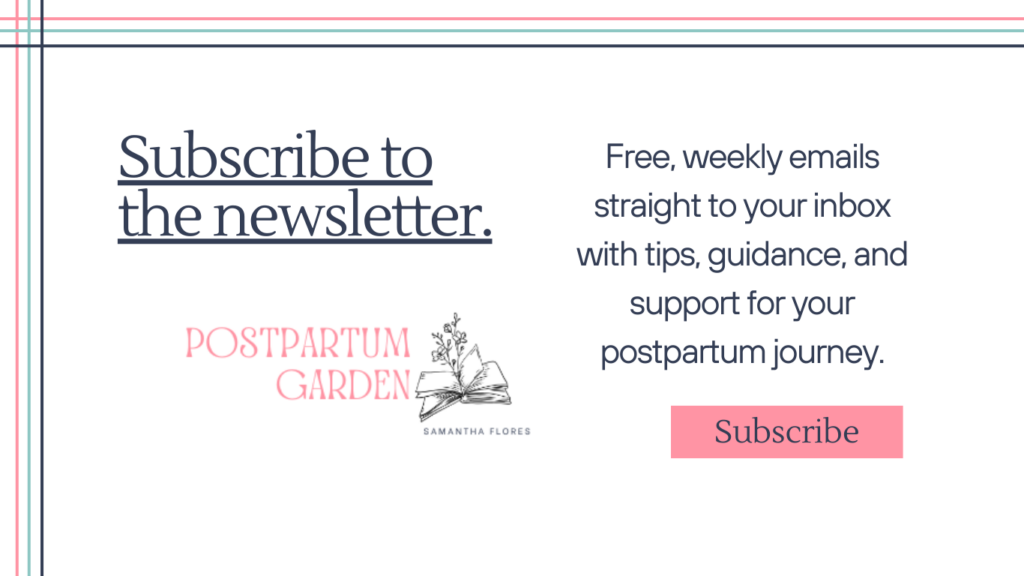
8 Things That Happen Postpartum
The following things that happen postpartum are common experiences many mothers will face. Discover what you might be going through that others are also experiencing.
Postpartum Rage
Medically speaking, postpartum rage is the result of the hormone imbalance that postpartum women experience. Women report feeling angry, frustrated, and losing their cool more easily than they would normally. In addition to the hormone imbalance, sleep deprivation, nutrition depletion, and overstimulation play a role in postpartum rage.
How to help postpartum rage:
- Communicate with your spouse/partner about your feelings
- Ask friends and family for help to release some of the overwhelm
- Remove expectations from yourself
- Focus on hydration and nutrition
- Reach out to your primary care physician for assessment
Intrusive Thoughts
Intrusive thoughts are one of the things that happen postpartum. They are known as unwanted and unpleasant thoughts. Some moms describe it as imagining bad things happening to their baby, which they cannot control. These thoughts are often distressing and can make moms feel like they are bad moms for having them. Fortunately, intrusive thoughts don’t make you a bad mom. They are part of many moms’ postpartum experiences, unfortunately.
How to help intrusive thoughts:
- Share your thoughts with someone you trust so that you don’t have to face it alone
- If you are worried, contact your physician for further evaluation
- Journal your thoughts on paper or a digital journal to help clear your mind of the thoughts
Related: Postpartum Resources: How to Help Yourself Heal
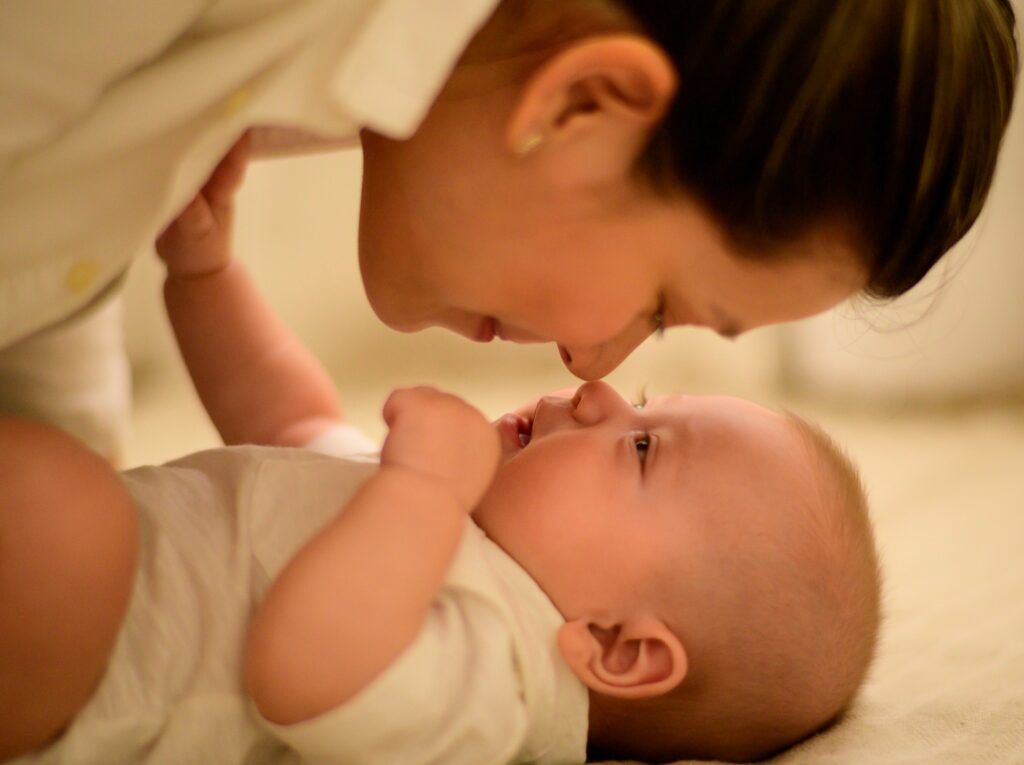
Postpartum Hair Loss
Many women experience postpartum hair loss, but not everyone does. Some mothers who have multiple children can experience hair loss after one baby and not another. It all varies due to hormone imbalance. Those mothers (me after all three pregnancies) who experience postpartum hair loss can take time for the hair loss to stop and the regrowth to begin.
How to cope with postpartum hair loss:
- Consider cutting your hair so that the loss isn’t as noticeable
- Wash your hair less frequently
- Use hair ties that don’t cause additional hair damage, like satin scrunchies
- Consider taking a multivitamin, such as the one available through NEEDED (use code postpartumsam for a discount)
Postpartum Body Changes
It’s no secret that your body experiences massive changes during pregnancy. What you might not expect are the changes that can continue to happen after delivering your baby. Some postpartum body changes you might experience include changes in your pelvic floor, weight gain, skin color changes, vision changes, and more. Read here for a list of additional changes you may experience postpartum.
How to cope with postpartum body changes:
- Make a note of the things you are noticing or experiencing
- If you are concerned, reach out to your doctor
- Communicate with your spouse/partner so that they are also aware
- Rest, rest, and more rest
- Focus on nutrition and hydration
Relationship Strain
The relationship strain is one of the big things that happen postpartum. I would argue that this is likely the most overlooked part of having a baby. Many couples experience this strain. From sleep deprivation to trying to understand this new little being and even understanding new roles in the family, a relationship strain is inevitable. However, this isn’t something that will last forever.
How to cope with the postpartum relationship strain:
- Communication is KEY; don’t stop talking and connecting with one another
- Make intentional time for one another
- Engage in date nights when possible
- Speak to a marriage and family therapist, if needed
- Remember that this baby was made from the love you both have for each other
Related: The Secret to Faster Postpartum Healing: How to Bounce Back
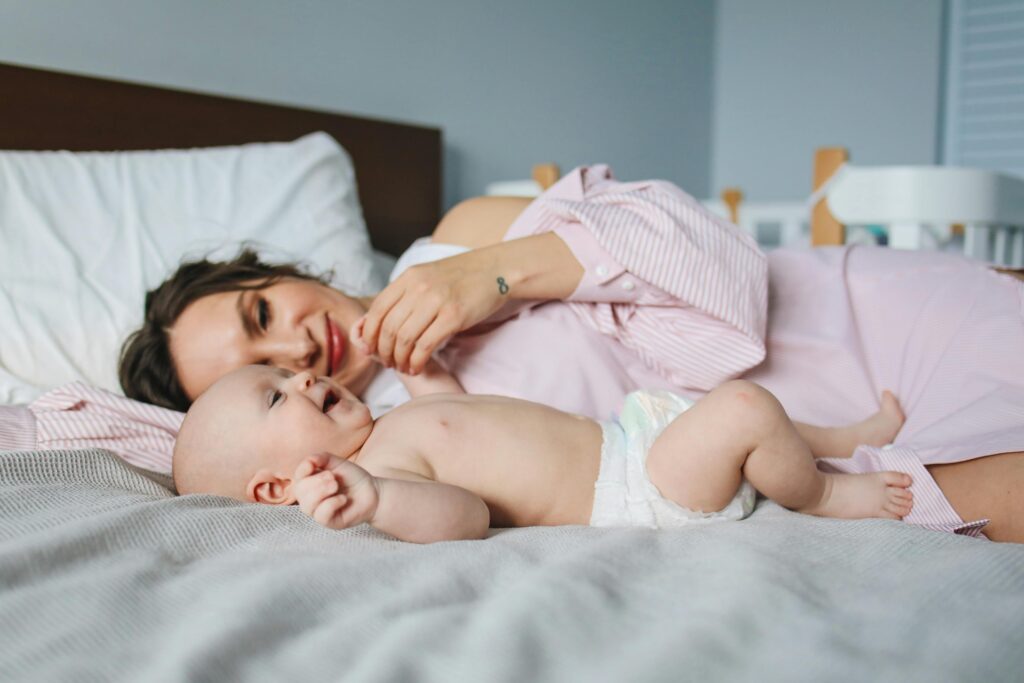
Loneliness
Ironically, postpartum can feel lonely even though you aren’t actually ever alone. Having a sweet baby who needs you 24/7 is both beautiful and exhausting. It can feel like you are losing yourself in the midst of it all. However, countless women are experiencing postpartum at the same time as you who are also in the thick of it. You are not alone.
How to cope with postpartum loneliness:
- Reach out to friends and family to schedule regular get-togethers (playdates, outings, or coming over for coffee)
- Talk to your spouse/partner about how you are feeling
- Spend some time in the sun each day to get your boost of vitamin D
- Remember to pencil in time for you each day, even if you can only start with five minutes for now
Anxiety
When you become a mom, no matter how many babies you have or don’t have already, postpartum anxiety can rear its ugly head. Suddenly, it feels like you are obsessing and worrying about every possible scenario about your baby and even your older children. This anxiety makes you feel a constant state of unease, which can impact other areas of your life.
How to cope with postpartum anxiety:
- Talk to your spouse/partner about how you are feeling
- Anxiety is just one voice in your head; spend time telling yourself the good things to combat this voice
- Reach to your doctor if you feel further evaluation is needed
- Continue to focus on rest, nutrition, and hydration
- Talk to friends and family to see if there are areas where they can help ease your anxiety
- Use a journal to write out your thoughts and clear your mind
Sibling Bonding Challenges
As exciting as it was to think about giving your child a baby sibling, sometimes it doesn’t always go so smoothly. A sibling bonding challenge can be one of the things that happen postpartum. There are examples of older children not wanting to have anything to do with the baby. Some children may regress to get attention as well. Whatever you may experience with siblings, remember to lead with love.
How to cope with sibling bonding challenges:
- Get on the same page with your spouse/partner about how to address it
- Make a plan with friends and family who are helping so that you stay consistent with your children
- Plan for one-on-one time with your older children to help them cope
- Talk to your children about what they are experiencing and how you can help them
- Be intentional during interactions with your older children and remind them they are loved
Related: Postpartum Brain Fog: What You Need to Know and How to Cope
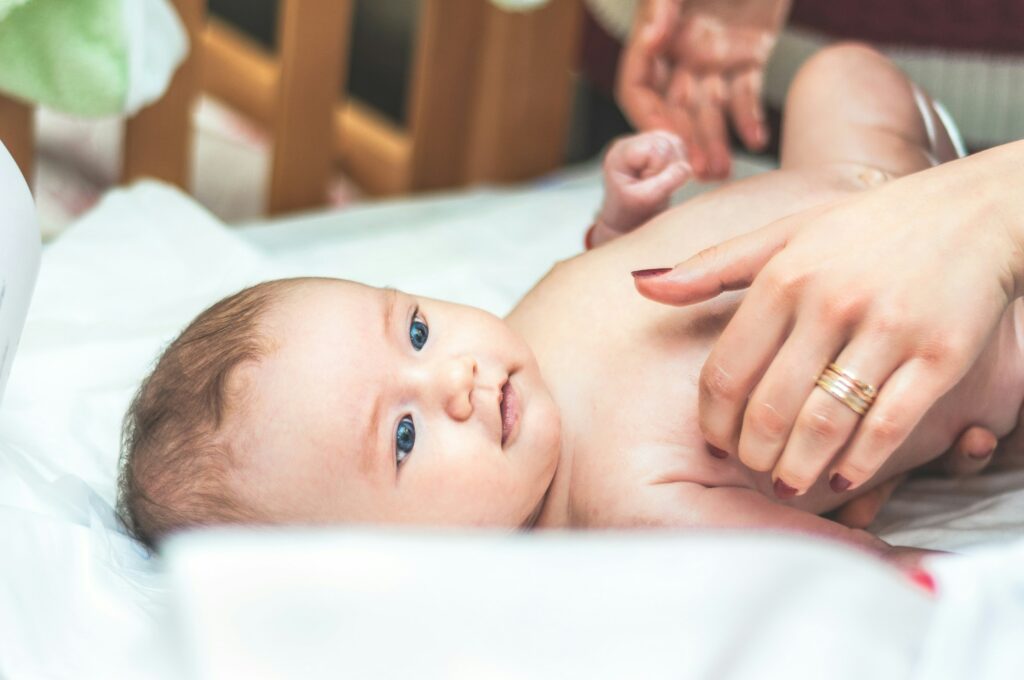
Postpartum is Hard and That’s Okay
The most important thing to remember is that things that happen postpartum don’t last forever. In the middle of it, it can feel like it will. However, I promise you (as a mom of three) that this season will come to an end. Postpartum is hard and that’s okay!
The first year postpartum is really about survival. Focus on your health, get rest, and take things slow. There is no rush to get through your postpartum journey. Take it one day at a time. If that is too much, focus on one hour at a time. You are strong and you CAN do this!

